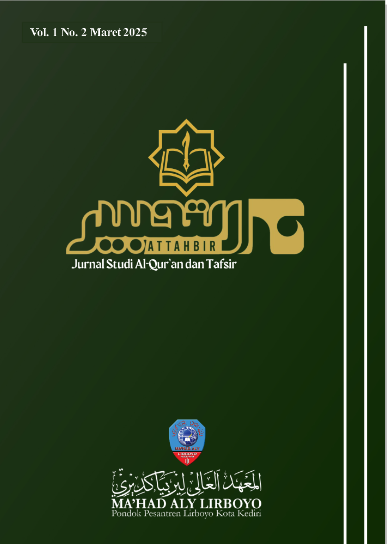Penggunaan ChatGPT akan Fatwa serta Aplikasinya dalam hukum Syariat (Studi Tafsir QS. An-Nahl: 43)
Penggunaan ChatGPT akan Fatwa serta Aplikasinya dalam hukum Syariat (Studi Tafsir QS. An-Nahl: 43)
Keywords:
Al-Quran, Fatwa, ChatGPT, hukum SyariatAbstract
This research aims to discuss the application of ChatGPT technology in issuing fatwas within Islamic law, focusing on the interpretation of QS. An-Nahl: 43. In this study, the author employs a qualitative descriptive-analytical approach to explore the potential of ChatGPT in providing answers based on user input, while considering the fundamental differences between ChatGPT and a mufti. The primary sources of this research are the Quran and classical literature (Kitab Kuning) in the disciplines of tafsir, usul fiqh, and fiqh, as well as secondary sources to understand the role of ChatGPT in the context of fatwas. The findings indicate that ChatGPTs status in Islamic law is equivalent to an inanimate object that does not meet the criteria of a legal subject. Moreover, its anonymous nature makes it unfit to be a mufti whose opinions can be followed, yet it shares similarities with reading classical texts, meaning its information can be accepted if subjected to strict verification. ChatGPT can only be used as an initial reference tool and must not be considered a primary source, especially in religious legal decisions. The implication of this research is the importance of verifying information provided by technologies like ChatGPT, particularly in religious matters.
References
Al-‘Aṭṭār, Ḥasan bin Muḥammad bin Maḥmūd. Ḥāsyiat al-‘Aṭṭār ‘alā Jam‘ al-Jawāmi‘. Dār al-Kutub al-‘Ilmiyyah, t.t.
Alī al-Baghdādī, Aḥmad bin. Al-Faqīh wa al-Mutafaqqih. Riyādh: Dār Ibn al-Jauzī, 1996.
Alkaissi, Hussam, Samy I. McFarlane, Hussam Alkaissi, dan Samy I. McFarlane. “Artificial Hallucinations in ChatGPT: Implications in Scientific Writing.” Cureus 15, no. 2 (19 Februari 2023). https://doi.org/10.7759/cureus.35179.
Al-Mālikī, Muḥammad ‘Alī bin Ḥusain al-Makkī. Inārat ad-Dujā Syarḥ Tanwīr al-Ḥijā Nazhm Safīnat an-Najā. Haramain, t.t.
Al-Māturīdī, Muḥammad bin Muḥammad bin Maḥmūd, Abū Manṣūr. Tafsīr al-Māturīdī. Lebanon: Dār al-Kutub al-‘Ilmiyyah - Bayrūt, 2005.
Al-Shawī al-Mālikī, Aḥmad bin Muḥammad. Ḥāshiyah al-Shawī. Pertama. Beirut: Dār Iḥyā’ al-Turāth, t.t.
An-Nawawī, Abū Zakariyyā Muḥyī ad-Dīn Yaḥyā bin Syaraf. Al-Majmū‘ Syarḥ al-Muhadzdzab. Beirut: Dār al-Kutub al-Ilmiyyah, t.t.
———. Al-Majmū‘ Syarḥ al-Muhadzdzab. Beirut: Dār al-Fikr, t.t.
———. Rauḍah aṭ-Ṭālibīn. Damaskus: Al-Maktab al-Islamy, 1991.
Ar-Ramlī, Syams ad-Dīn Muḥammad bin Abī al-‘Abbās Aḥmad bin Ḥamzah Syuḥāb ad-Dīn. Ghāyat al-Bayān Syarḥ Zubad. Beirut, t.t.
Aṣ-Ṣābūnī, Muḥammad ‘Alī. Ṣafwah at-Tafāsīr. Kairo: Dār aṣ-Ṣābūnī liṭ-Ṭibā‘ah wa an-Nashr wa at-Tawzī‘, 1997.
As-Subkī, Taqīy ad-Dīn bin ‘Alī. Fatāwā as-Subkī. Beirut: Dār al-Ma‘rifah, t.t.
As-Sya’rāwi, Mutawalli. Tafsīr as-Sya’rāwi. Kairo: Akbar al-Yaum, t.t.
Asy-Syinqīṭī, Muḥammad al-Amīn bin Muḥammad al-Mukhtār bin ʿAbd al-Qādir al-Jaknī. Aḍwā’ al-Bayān fī Iḍāḥ al-Qur’ān bil-Qur’ān. Beirut: Dār al-Fikr, 1415.
Az-Zarqānī, Muhammad Abd al-’Aẓīm. Manāhil al-’Irfān. Beirut: Dār al-Kutub al-Ilmiyyah, 2019.
Az-Zuhaylī, Muṣṭafā. al-Wājiz fī Uṣūl al-Fiqhī. Suriah: Dar al-Khaw li al Thaba’ah wa al-Nasyr wa alTauzi, 2006.
Az-Zuhaylī, Wahbah. Uṣūl al-Fiqh al-Islāmī: Damaskus: Dār Al-Fikr, 1987.
Baidoo-anu, David, dan Leticia Owusu Ansah. “Education in the Era of Generative Artificial Intelligence (AI): Understanding the Potential Benefits of ChatGPT in Promoting Teaching and Learning.” Journal of AI 7, no. 1 (31 Desember 2023): 52–62. https://doi.org/10.61969/jai.1337500.
Dimyatī, Muhammad afīf ad-Dīn. Mawārid al-Bayān. Jombang: Lisan Arabi, 2018.
Dwivedi, Yogesh K., Nir Kshetri, Laurie Hughes, Emma Louise Slade, Anand Jeyaraj, Arpan Kumar Kar, Abdullah M. Baabdullah, dkk. “Opinion Paper: ‘So what if ChatGPT wrote it?’ Multidisciplinary perspectives on opportunities, challenges and implications of generative conversational AI for research, practice and policy.” International Journal of Information Management 71 (1 Agustus 2023): 102642. https://doi.org/10.1016/j.ijinfomgt.2023.102642.
Idris al-Ṣanhānji al-Qarāfī, Ahmad ibn. Al-Furūq (Beirut: Dar al-Kutub al-Ilmiyyah ). Beirut: Dār al-Kutub al-Ilmiyyah, 1971.
Jum‘ah, ‘Alī. Ṣinā‘at al-Iftā’ · al-Iftā’, t.t.
Kurnia, Novi, dan Amalinda Savirani. BIG DATA UNTUK ILMU SOSIAL: ANTARA METODE RISET DAN REALITAS SOSIAL. UGM PRESS, 2021.
Al-Haythamī, ḥmad bin Muḥammad bin ‘Alī bin Ḥajar. al-Fatāwā al-Fiqhiyyah al-Kubrā, t.t.
Muslim, Muṣṭafā. Mabāḥiṡ Fī at-Tafsīr al-Maudhu’ī. Dār al-Qolam, 2005.
Mustafa, Zulfa. Al-Fatwā wa mā yanbaghī lil-Mutaqaffih Jahluh. Jakarta Selatan, 2021.
“(PDF) ARTIFICIAL INTELIGENCE UNTUK KEMANUSIAAN: Pengembangan Konsep Keberagamaan Melalui Chat-GPT Sebagai Solusi Krisis Identitas Muslim Urban Di Era Digital.” ResearchGate, 22 Oktober 2024. https://doi.org/10.32332/moderatio.v4i1.8913.
Qurṭubī, asy-Syams al-Dīn al-. Tafsīr al-Qurṭubī. Kairo: Dār al-Kutub al-Miṣriyyah, 1964.
Qushayrī, Abd al-Karīm al-. Lata’if al-Ishārāt. Miṣr, al-Ḥay’ah al-Miṣriyyah al-‘Āmmāh, t.t.
Reed, Randall. “A.I. in Religion, A.I. for Religion, A.I. and Religion: Towards a Theory of Religious Studies and Artificial Intelligence.” Religions 12, no. 6 (Juni 2021): 401. https://doi.org/10.3390/rel12060401.
Setiawan, Dodi, Emilia Ayu Dewi Karuniawati, dan Saksia Imelda Janty. “Peran Chat Gpt (Generative Pre-Training Transformer) Dalam Implementasi Ditinjau Dari Dataset.” Innovative: Journal Of Social Science Research 3, no. 3 (9 Agustus 2023): 9527–39.
Shiahab, M. Quraish. Syariat, Ekonomi, Bisnis dan Bunga bank (: i, 2021). Tanggerang Selatan: Lentera Hati, 2021.
Shihab, M. Quraish. Membumikan Al-Quran : fungsi dan peran wahyu dalam kehidupan masyarakat. Bandung: Mizan, 2013.
Downloads
Published
Issue
Section
License
Copyright (c) 2025 AT-TAHBIR: Jurnal Studi Al-Qur'an dan Tafsir

This work is licensed under a Creative Commons Attribution-ShareAlike 4.0 International License.







